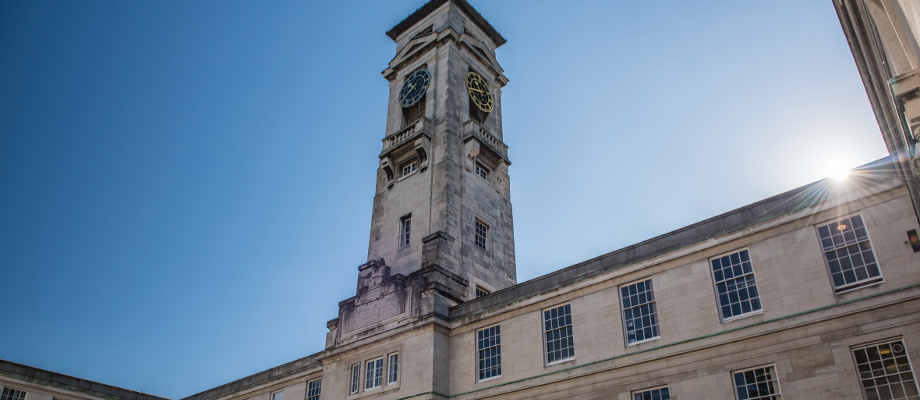
Statement on Free Speech and Academic Freedom – Consultation
May 11th, 2021
As the university publishes a new statement on free speech and academic freedom for consultation with staff and students, university Registrar Dr Paul Greatrix explains why these freedoms are so important and how we intend to protect them at the University of Nottingham.
Today we are launching a consultation among our university community on the critical issues of free speech and academic freedom. The intention is to enable wide discussion among colleagues and students on these matters and to finalise a statement on free speech and academic freedom which will set out, clearly, where we stand.
In the current climate where everything seems to being sucked into the ‘culture wars,’ and the government considers new legislation on campus free speech, universities are very much in the front line. The University Executive Board therefore commissioned a review of our approach under an expert working group which has produced a draft new university statement on free speech and academic freedom.
I hope as many staff and students as possible will consider the statement and tell us what they think. Please consider the statement on free speech and academic freedom alongside its contextual notes and complete this short consultation form by Friday 28 May 2021.
Whilst we know that we are going to be facing ever greater pressures on free speech issues, we should also remember that debates on the challenges, limits or otherwise of free speech are not new. We have had to deal with a good number of challenges and issues around free speech and academic freedom over the years and have responded to and developed policies in relation to new legislation and regulations as they have emerged.
I believe that Nottingham has a strong track record in supporting both free speech and academic freedom and, whilst there have inevitably been points of contention and conflict from time to time, we have handled all of the big challenges appropriately and in a measured way. These are different times now though and in addition to the public, media and government scrutiny of universities’ actions in these areas we face significant issues in the realm of social media too which can lead to new and often more complicated concerns.
It is fundamental to the approach here that the university will actively promote freedom of speech and allow for robust and civil debate within the law – but we will also aim to protect the freedom of speech of our staff and students from those external to our community who seek to interfere with it as far as we can. It is important that we help students learn through debate and exposure to new ideas, while providing a supportive environment and infrastructure for them to ensure their wellbeing.
Academic freedom is also central to the position and the statement stresses that, whenever possible, controversial ideas should be subject to questioning and challenged by evidence and reasons. The university’s policies are designed to ensure that debates about controversial ideas are peaceful and civil and take place within the law, and that participants in these debates are not made to feel intimidated or censored – in other words, to “disagree well.”
In studying our draft statement, you will also note the assertion that the university is “not a public square.” This is about confirming that whilst we are committed to free speech, this does not mean we are simply open to all-comers. It is perhaps a most distinctive aspect of our statement which stresses that we are not obliged to provide a platform to those with no relevant expertise or who espouse palpable falsehoods. This is a university, a place of learning and reasoned debate – for those who espouse falsehoods or lack relevant expertise, there are places other than our university where they may speak.
The statement on free speech and academic freedom intends to be a living document which will be reviewed in the light of experience. It cannot anticipate every case which will arise, but all of us on the working group believe it addresses many of the free speech issues including the more challenging situations which may occur. We know that there will inevitably be really difficult cases, especially those that involve balancing competing interests and considerations, on which reasonable people may disagree. We are nevertheless confident that this statement provides a strong basis for managing these. Part of that confidence also stems from the fact that the values embodied in the statement are the same as those set out in the University Strategy around which there was strong agreement from the community when they were established in 2019.
This statement is the result of a considerable amount of hard work, open discussion and robust debate by the members of the Free Speech Working Group. I would like to place on record my sincere thanks to them all: Professor Marko Milanovic, Professor of Public International Law, School of Law; Dr Zachary Hoskins, Associate Professor, Department of Philosophy; University General Counsel, Kate Gallagher; Campus Life Director, Andy Winter; and Students’ Union Development Officer, Madeleine Fox.
I do hope you all take the opportunity to contribute to the consultation and discuss the issues with your colleagues. This has to be a statement that the university as a whole owns and stands by – your contribution therefore really does matter.
Dr Paul Greatrix
Registrar
Tags: academic freedom, consultation, free speech, freedom of speech, Registrar Dr Paul Greatrix, UEB, University Executive Board, University strategy
Leave a Reply
Other

Need news? See you on SharePoint
After 14 years of service, Campus News is being retired as the university’s staff news platform. […]

Roads and car parks closed for refurbishing work
As part of ongoing road improvements at the university, works will be taking place to resurface […]

